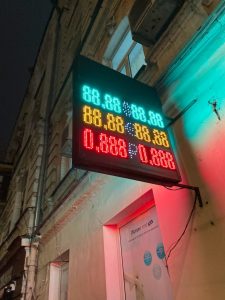Forex trading is a popular investment vehicle for many individuals worldwide. This market involves buying and selling currencies with the aim of making a profit. However, like any investment, forex trading comes with its own set of risks and challenges. In order to manage these risks, traders must keep track of their investments and report their forex activities to the appropriate authorities. In this article, we will explain how to report forex and the importance of doing so.
Why Report Forex?
Reporting forex activities is essential for compliance purposes. Forex trading falls under the jurisdiction of the Commodity Futures Trading Commission (CFTC) in the U.S. and other relevant regulatory bodies in different countries. These regulatory bodies require traders to report their forex activities to ensure that they are operating within legal and ethical boundaries. Failure to report forex activities can lead to penalties and legal consequences.
Reporting forex activities also helps traders to keep track of their investments. Forex traders must maintain accurate records of their trades and financial activities. This information can be used to monitor their progress and make informed decisions about future trades.
How to Report Forex?
Reporting forex activities involves several steps. These steps include:
1. Keeping Accurate Records: Forex traders must maintain accurate records of all their trades and financial activities. This includes data on the currency pairs traded, the date of the trade, the amount traded, the price of the currency at the time of the trade, and any profits or losses incurred.
2. Filing Tax Returns: Forex traders must file tax returns with the appropriate authorities. The tax returns must include all the necessary information about their forex activities, including profits and losses incurred. Forex traders must comply with tax laws in their country of residence.
3. Submitting Reports to Regulatory Bodies: Forex traders must submit reports to the relevant regulatory bodies in their country. These reports must include information about their forex activities, including trades made, profits and losses, and any other relevant financial information. Regulatory bodies use this information to monitor the forex market and ensure that traders are operating within legal and ethical boundaries.
4. Using Forex Reporting Software: Forex traders can use forex reporting software to automate the process of reporting their forex activities. This software can help traders keep track of their trades and financial activities, generate reports, and file tax returns. There are several forex reporting software solutions available in the market, and traders must choose one that suits their needs.
Conclusion
Forex trading is a popular investment vehicle for many individuals worldwide. However, traders must report their forex activities to the appropriate authorities to ensure compliance with legal and ethical boundaries. Reporting forex activities involves keeping accurate records, filing tax returns, submitting reports to regulatory bodies, and using forex reporting software. By following these steps, forex traders can manage their risks and maintain a clear record of their investments.





